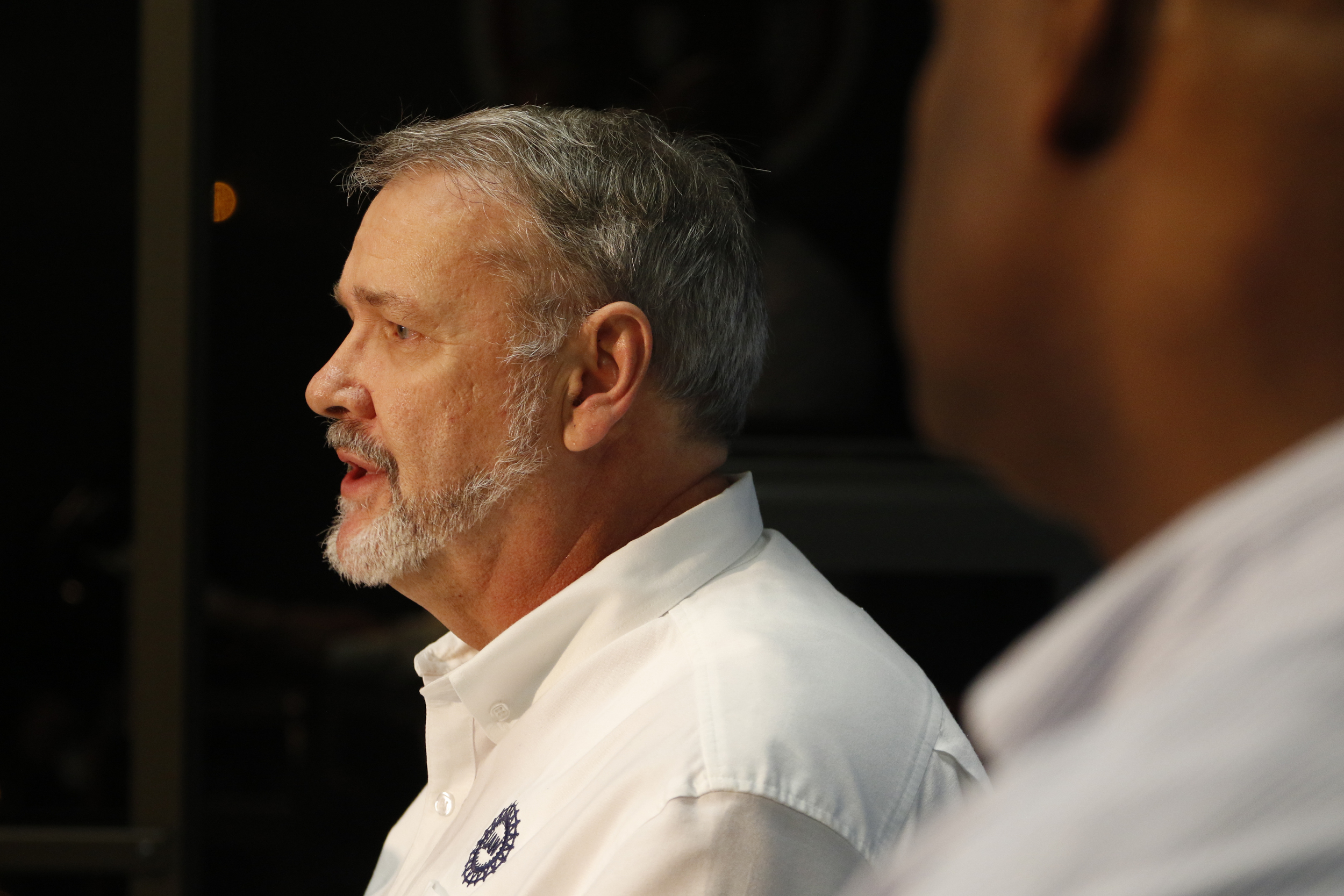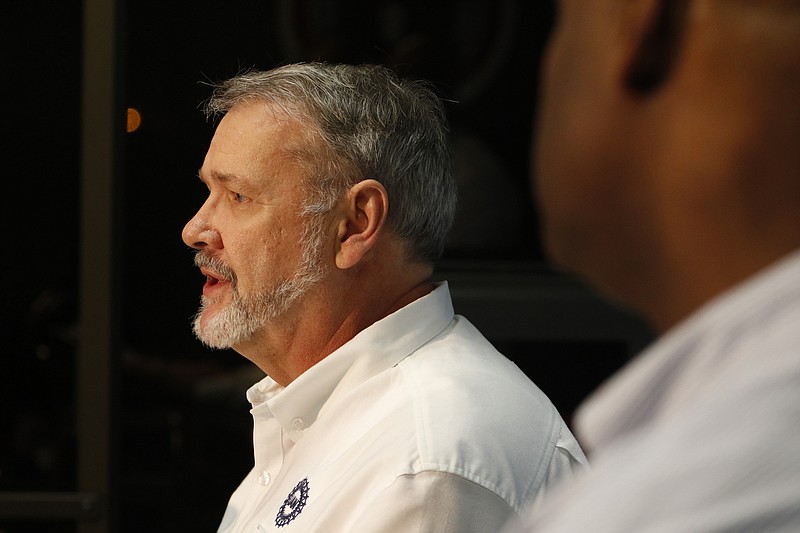"It could turn into a giant mess," said Phillip B. Wilson, president of the Labor Relations Institute. "At the end of the day, the UAW and unions in general have a real message problem."
But a University of Mississippi professor said the UAW's win in Chattanooga will overcome a lot of fear of unions at VW and in other foreign-owned auto assembly plants in the region.
"It's symbolic for the whole spirit of their efforts to try to gain a foothold in the South," said Joe Atkins, who follows and writes on labor issues.
A group of maintenance, or skilled trades, workers at the VW plant voted for the UAW, 108 to 44. It was the second try by the union after failing to organize the plant's 1,500 or so blue-collar workers in February 2014.
VW has said it will appeal the validity of the election to the National Labor Relations Board. VW claims the unit wasn't the most appropriate one and that organizing only the workers who fix the plant's robots and equipment will fracture its workforce.
An NLRB ruling in favor of the company could invalidate the election, but a Chattanooga labor law expert doesn't see the board backing VW.
"In my understanding of the law the board has created, the union still has the better of the arguments," said Dan Gilmore, who also teaches at the University of Tennessee at Chattanooga. "My prediction is that the appeal will not be successful."
If the win stands, the VW unit is the first to be represented by the UAW among any foreign-owned auto assembly in the South, after years of trying. The South is seen as key to the UAW after its membership plunged over the past couple of decades.
Still, UAW officials after the vote had little to say about other plants, saying instead that they're committed to VW in Chattanooga.
"This development represents a decision made by, and for, local employees here in Chattanooga," said Mike Cantrell, UAW Local 42 president.
 Staff Photo by Dan Henry / The Chattanooga Times Free Press- 12/4/15. Mike Cantrell, left, president of UAW Local 42, and Ray Curry, director of Region 8, announce the results of an election in which 152 Volkswagen workers voted to join the United Auto Workers union for collective bargaining purposes by 71 percent on Friday, December 4, 2015.
Staff Photo by Dan Henry / The Chattanooga Times Free Press- 12/4/15. Mike Cantrell, left, president of UAW Local 42, and Ray Curry, director of Region 8, announce the results of an election in which 152 Volkswagen workers voted to join the United Auto Workers union for collective bargaining purposes by 71 percent on Friday, December 4, 2015. He said the skilled trades employees cast their ballots "in the best interests of this plant," adding he'll ask that collective bargaining with VW begin as soon as possible and that the union will continue to try to organize the rest of the workforce.
However, Wilson said the UAW is in "a tight spot" at VW. If the union can't negotiate "a nice contract" for maintenance workers, one that's much different from what they now enjoy in pay and benefits, why would other VW workers join the UAW?
Wilson, whose labor consulting company offers union avoidance services among others, added that auto employees across the South will be looking at the contract.
"It's hard to imagine they'll convince a lot of people to fork over hundreds of dollars a year [in dues] to the UAW for what they're basically getting," he said.
But Atkins said the union win sends a signal "that this region can be organized and people can have a voice in their working lives. What's going on in Chattanooga is real significant for the labor movement as a whole across the region."
Richard Hurd, a Cornell University professor of labor relations, said he expects to see VW work with the UAW, given its global policy of doing likewise with unions.
"I anticipate VW will work with them in a productive manner to reach a collective bargaining agreement," he said. "I don't anticipate any animosity. I don't anticipate a long, drawn-out fight."
Still, a big uncertainty facing VW is its diesel emissions scandal and the impact that has had on sales. VW's U.S. sales last month had plummeted nearly 25 percent from a year ago. Sales of the Chattanooga-made Passat posted a 60 percent drop, though some of that fall was seen as involving a model changeover.
Karl Brauer, Kelley Blue Book's senior director of insights, said the union is another variable at the plant.
"The tricky thing in VW's case is that there's already so much uncertainty," he said.
The automaker is trying to cut costs to pay for the scandal. It has already set aside about $9.6 billion to cover costs related to making the cars comply with pollution regulations, although that sum is unlikely to cover potential legal judgments or fines.
There are questions about how much having a union will increase expenses in Chattanooga, Brauer said.
"It's another variable in a highly dynamic and uncertain circumstance," he said.
A $700 million expansion is underway so the Chattanooga plant can start producing a new sport utility vehicle in late 2016. Plans are to hire 2,000 workers to join the nearly 2,600 at the plant. So far, VW officials have said the scandal hasn't affected employees.
Meanwhile, Tennessee Gov. Bill Haslam said last week that he worries that automotive suppliers will reconsider coming to the state if the UAW develops "a stronghold."
"The more suppliers who come, the more it helps OEMs (original equipment manufacturers)," he said. "That helps suppliers come. It's a virtuous cycle. I'd hate to see the cycle interrupted in some way."
Hurd, however, termed Haslam's worries "a misplaced concern."
"Suppliers are attracted by assembly plants," he said. "If cars are being made they'll be there."
Contact Mike Pare at mpare@timesfreepress.com or 423-757-6318.
